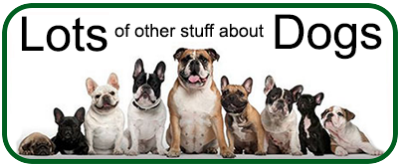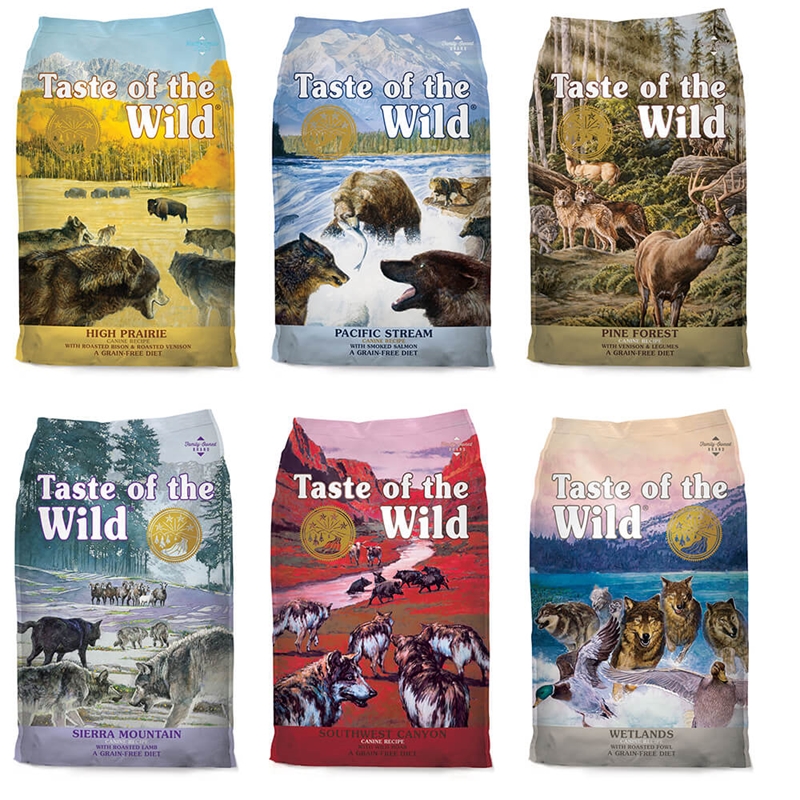Ten important health care tips to stay on top of
What's best for your furry friends
Regular annual health check-ups are vital
Spay or neuter your dog
Prevent parasites (fleas, ticks mosquitoes, mange and ear mites)
Maintain a healthy weight - are you killing your dog with kindness?
Introduce a safe vaccination plan
Pets need regular dental care too!
Never give pets human medication
Provide an enriched environment
ID Microchip your dog
Use a proper restraint in a vehicle
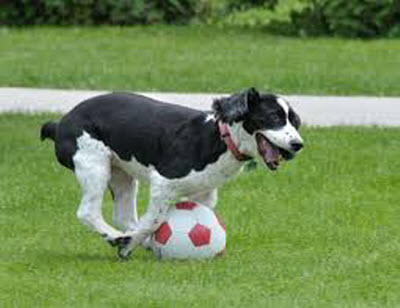
We all know how much better we feel when we put a bit of time and energy into exercising regularly and taking care of our health. Keeping your dog in tip top condition is pretty much the same story.
Here's a list of ten very simple things you can do to help your precious friend feel well, and stay healthy.
Regular annual health check-ups are vital
Just like you, your pet can get heart problems, arthritis, joint disease, and dental disease.
Kara M. Burns, MS, Med, LVT, president of the Academy of Veterinary Nutrition Technicians, says, the best way to prevent heart problems, or degenerative diseases (such as arthritis), is to catch them early by making sure your pet has regular annual check ups with your family vet.
Between eight and ten million pets end up in U.S. shelters every year. Some have been abandoned, some are lost, and some are homeless.
An easy way to avoid adding to that number is to spay and or neuter your dog. It's a procedure that can be performed as early as six to eight weeks of age.
Spaying and neutering doesn't just cut down on the number of unwanted pets, it has other substantial benefits for your pet too. Recent studies indicate that spaying and neutering:
- Lowers the risk of certain cancers
- Reduces a pet's risk of getting lost by decreasing its tendency to roam

Prevent parasites (fleas, ticks mosquitoes, mange and ear mites)
Year-round prevention is key to keeping your dog free of fleas and ticks, and along the way you will effectively be protecting your dog from seasonal parasites (e.g. heartworm) and from catching highly contagious mites (e.g. mange and ear mites) from wildlife in parks or other people's pets with infestations.
Fleas, are the most common external parasite that plague dogs, and they can lead to irritated skin, hair loss, flea allergies, hot spots, and infection.
Fleas can also introduce other parasites into your dog. All it takes is for your pet to swallow one flea, and it can to end up with tapeworms, the most common internal parasite affecting dogs.
When huge profits are at stake for drug manufacturers, vets,and pet suppliers, there is always going to be controversy about what is the best approach to keeping your pets free from parasitic infestations.
The writer believes chemical protection can be life threatening to your pet. Please take a moment to read the following links The Whole Dog Journal and recent EPA research.
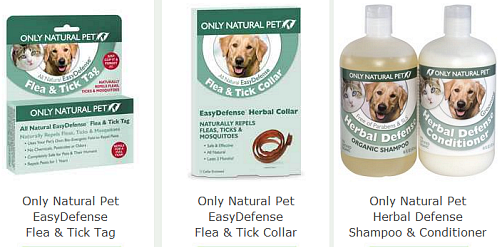
There are safe and effective natural home flea remedies which you can make to protect your dog, plus the writer uses and recommends a flea, tick and mosquito tag which lasts for four years, and also protects against ear and mange mites.
Maintain a healthy weight - are you killing your dog with kindness?
Many dogs in the U.S. are overweight or obese. And just like in people, obesity in pets comes with health risks that include diabetes, arthritis, and cancer.
Over feeding is the leading cause of obesity, in fact keeping your dog trim can add many years to his or her life span.
Dogs require far fewer calories than most of us think, e.g. as little as 185 to 370 a day is sufficient for a small, inactive dog and just 240 to 350 calories daily for a 10-pound dog. Have a chat to your vet who can best advise you on the correct amount of food your dog needs based on his or her weight, age, and lifestyle.
Introduce a safe vaccination plan
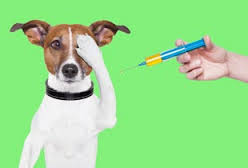
For optimal health, dogs need their initial puppy shots and their booster shots a year later, particularly with regard to common ills, such as rabies, distemper and canine hepatitis.
As to how often your dog needs to be vaccinated thereafter is a subject of much debate between holistic vets who blame over vaccinating for the increasing frequency of dogs developing cancer, to vets who recommend vaccinating every year.
As with parasitic protection, when huge profits are at stake for drug manufacturers and vets, there is always going to be controversy about what is the best approach to keeping your pets free from viruses and bacterial infections.
If you have concerns about whether to vaccinate annually, Click Here to read Carole's Doggie World article on vaccinations. In addition, do your own research.
Pets need regular dental care too!
Just like you, your pet can suffer from gum disease, tooth ache and loose teeth. And just like you, regular brushing and oral cleanings help keep your pet's teeth strong and healthy.
"Dental disease is one of the most common preventable illnesses in pets", Ohio veterinarian Vanessa Douglas says, "yet many people never even look in their pet's mouths".
It's estimated 80% of dogs in the US show signs of dental disease by the time they are three years old, leading to chronic pain, loose teeth, abscesses, general anesthetics and extractions. In addition to regular dental check ups by your vet, "periodontal disease can be avoided by proper dental care by owners". home dental care includes brushing, and dental treats.
Never give pets human medication
Medicines made for humans can kill your pet, says Georgia veterinarian Jean Sonnenfield, DVM. As a matter of fact, in 2010 the ASPCA listed human drugs in the top 10 pet toxins.
NSAIDs like ibuprofen and naproxen are the most common pet poisoning culprits, but antidepressants, decongestants, muscle relaxants, and acetaminophen are just a few of the human drugs that pose health risks to pets. Human drugs can cause kidney damage, seizures, and cardiac arrests in dogs.
If you suspect your pet has consumed your medication - or anything toxic - call the 24-hour ASPCA Animal Poison Control Center. Also be sure to immediately check with your vet, and if it is during evening or weekend hours when your regular vet clinic may be closed, check for a local 24-hour emergency vet clinic and take your pet there for an examination. Many metropolitan areas have these clinics.
Provide an enriched environment
An enriched environment is another key to the long-term health and welfare of your furry friends, says Tony Buffington, DVM, PhD, a veterinary nutritionist and professor at Ohio State University Veterinary Medical Center in Columbus.
Pets need daily:
- Mental stimulation, e.g. toys to play with and general involvement with whatever the family is doing. Rides in the car and going hiking are favourite outings with many dogs
- One or two walks a day, depending on the age and breed of your dog
- Play time with Mum, Dad or the kids, this could be throwing a ball or a frisbee, or going swimming with your dog
- Love and affection
- A warm dry bed in a quiet area of your home to sleep and snooze in
- I feed my dogs on human grade fresh meat, and raw, meaty, soft bones, mixed with freshly cooked vegies. Whether you prefer cooked or raw food for your dog, home made meals are best. Commercially prepared dog food, like parasitic control, and whether to vaccinate year on year, falls into the arena of huge manufacturers, and pet suppliers making large profits. What you feed your dog is vital for his or her quality of life and health. Please do your own research on this subject.
- Regular dental and health check ups
- Regular bathing and grooming
- Fresh drinking water

Lack of identification means as few as 14% of pets ever find their way home after getting lost. Fortunately, micro- chipping allows for pets to be reunited with their families, no matter how far away they are when found.
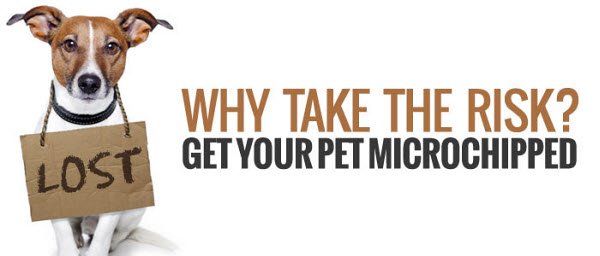
About the size of a rice grain, a microchip is inserted under the skin in less than a second. It doesn't require a battery and can be scanned by a vet or an animal control officer in seconds.
Be sure to register the chip ID with the chip's maker. A current registration is the vital last step in making certain your pet can always find his way home.
Use a proper restraint in a vehicle
You buckle up for safety when you're in the car, shouldn't you do the same for your dog? An unrestrained dog in a car is a distraction to the driver, and can put both the driver and dog at risk for serious injury, "or worse". To keep your dog safe in transit:
- Never allow him or her to travel in the front seat, where he or she is at risk of severe injury or death if the airbag deploys.
- Don't let your dog ride with his or her head out the window or unrestrained in the back of a truck or ute. Both practices put your dog at risk of being thrown from the vehicle in the event of an accident.
- Confine your dog by using a special dog seat belt which fits into a normal seat belt slot. Alternatively use a well-secured kennel or carrier
If you enjoyed this Tip please "Like" this page, leave us a comment and share with your family and friends.
This article and information forms part of the Carole's Doggie World Holistic Library and is presented for informational purposes only.The information is not intended to be a substitute for visits to your local vet. Instead, the content offers the reader information researched and written by Carole Curtis for www.carolesdoggieworld.com

